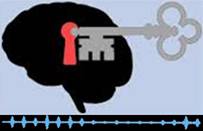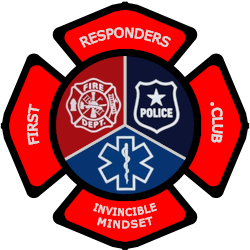Divorce: Stage 4 – Depression
By Robert Rudelic BS, NMT, MES
All of the articles in this series:

Are you spiraling downward in a loop of negative thoughts constantly worrying about what you’ve lost and how to survive it?


de·pres·sion – feelings of severe despondency and dejection.
Depression is a disorder involving low mood and a wide range of other possible symptoms, which can vary from person to person. It can develop quickly or gradually, and be brought on by life events and/or changes in body chemistry, and it is often accompanied by feelings of anxiety. It can strike anyone, but can be especially intense when going through a break up or divorce. It’s not uncommon that you could experience some degree of situational depression as part of the normal grieving process over all the losses the end of a relationship brings.
Depression affects how you feel, think, and act and is different from normal feelings of sadness. Suffering from depression can cause a lack of energy, diminished interest in daily activities and feeling irritable and short-tempered most of the time.
 What is situational depression?
What is situational depression?
A great description posted in Behavioral Health – “Situational depression is a short-term form of depression that can occur in the aftermath of various traumatic changes in your normal life, including divorce, retirement, job loss, or the death of a relative or close friend. Doctors sometimes refer to the condition as adjustment disorder.
A person with situational depression may have symptoms that are more or less identical to someone with clinical depression; however, there are certain key differences. Situational depression occurs when you haven’t yet adapted to the changes brought about by these situations and incorporated them into your overall life experiences.”
Situational depression symptoms develop within roughly 90 days following the event that triggers the condition. Along with the symptoms mentioned above –
 Symptoms of situational depression include:
Symptoms of situational depression include:
- Feelings of hopelessness
- Sleep problems
- Recurring bouts of crying
- Fatigue
- Significant weight loss or weight gain
- Withdrawal from friends and family
 The damaging effects of staying stuck in depression:
The damaging effects of staying stuck in depression:
If you’re suffering from depression you run the risk that your brain will shrink and will remain smaller over time. Depression not only makes you feel sad and dejected – it can also damage the brain permanently, so you’ll have difficulties remembering and concentrating. It is well known that chronic stress can provoke depression. Scientific studies show an explanation for this phenomenon…
“Stress reduces the brain’s innate ability to keep itself healthy. As a result, the hippocampus – a vital part of the brain – shrinks, impacting negatively on both our short-term memory function and your learning abilities. Being easily stressed which in turn creates a susceptibility towards depression, gives an imbalance in the serotonin system and thus a greater risk of developing depression.”
You can conquer depression, boost your brain and eliminate stress – and remember – The Right Tools For The Job Cuts The Work In Half!

Depression and situational depression are both serious conditions and only separated by depth and length of time.
How fast it comes on, how deep or intense it becomes and how long it lasts largely depends on how well you manage stress and your emotions in the beginning stages. Depression can come on very quickly for some and the longer you stay in a depressed state the more long-term damage will be done.
There are things you can do to keep from getting depressed and also to get yourself out of being depressed. I address both in-depth in other blog articles and in my digital training products.
There are some things you can do right away that will have a big impact and keep you on the bright side of life.
Things to do to avoid falling into depression include:
1 – Wall yourself off from your “helpful friends” – those people who want to console you and that tell you everything will be alright. It won’t be unless you get off your butt, make a plan and take action. These people are also known as enablers or co-dependents. They mean well but only make your situation worse and stifle your recovery.
2 – Make a long term plan (12-18 months out) for what you want to have in your life when your break up or divorce is final. Then find someone to be your Accountability Partner. Make sure they are strong enough to keep you on track when you may not want to. Share with them your plan and your plan of action, have bench marks and a timeline. A plan will help you look past the self-doubt and get out of the pity party going on in your head and your accountability partner will keep you on track.
3 – Take massive action. Nothing staves off depression more effectively than taking action, getting busy and seeing results. Results are King, they are tangible and undeniable. Your accountability partner will be there to point that out. Staying busy also eliminates any tendencies of dropping back into a downward depressive cycle.
Things you can to do to recover faster from being depressed:
1 – Exercise, now this is not news to most people but exercise is the #1 suggestion in most protocols to get rid of depression. It is a high impact tool for situational depression and works almost immediately for most people.
2 – Twice a day take 5 minutes to be grateful. Being grateful is not knew either but I developed a powerful exercise that works quickly to change your physical state and your mindset.
The Gratitude Exercise – State something your grateful for and why, say thank you 3 times then move on to the next thing you’re grateful for. Repeat this 9 more times. Do this out-loud and with a lot of emotion (even if you have to manufacture the emotion).
3 – Here’s a buffet of impactful things you can choose from to assist you in recovery: immerse yourself in learning something new, volunteer, clean up your diet and avoid alcohol and marijuana (yup -marijuana for many is a strong trigger for depression).
Keep this in mind, depression is addictive, it’s a chemical addiction just like anger. So interrupting it and doing something that changes your state as fast as possible is vital. PowerTapping is the primary tool I use in all of my work to create massive change quickly and completely. It is the easiest and most powerful tool to avoid getting depressed and recover from it. More on PowerTapping later.

End the cycle of negativity and misery –
And Thrive
Next, go to the fifth blog post in the series – Divorce: Stage 5 – Acceptance
If You Want to Learn How to –
- Own emotional composure
- Eliminate self-sabotaging beliefs
- Have an unshakable “Yes I Can Attitude”
- Bravely stand up for yourself, think ahead, and make decisions with clarity and confidence
Go to www.InvincibleDivorcee.com

My Program is an experiential training that pays off immediately by teaching you how to quickly change your mindset putting you in full control. You’ll learn how to replace the old beliefs with new beliefs and lock them in permanently, be inspired, and own emotional composure. The results are life-changing!
For more information, visit our PowerTapping page.
San Francisco, CA 94107
Contact Us: www.RobertRudelic.com/contact
E-Mail: support@RobertRudelic.com

